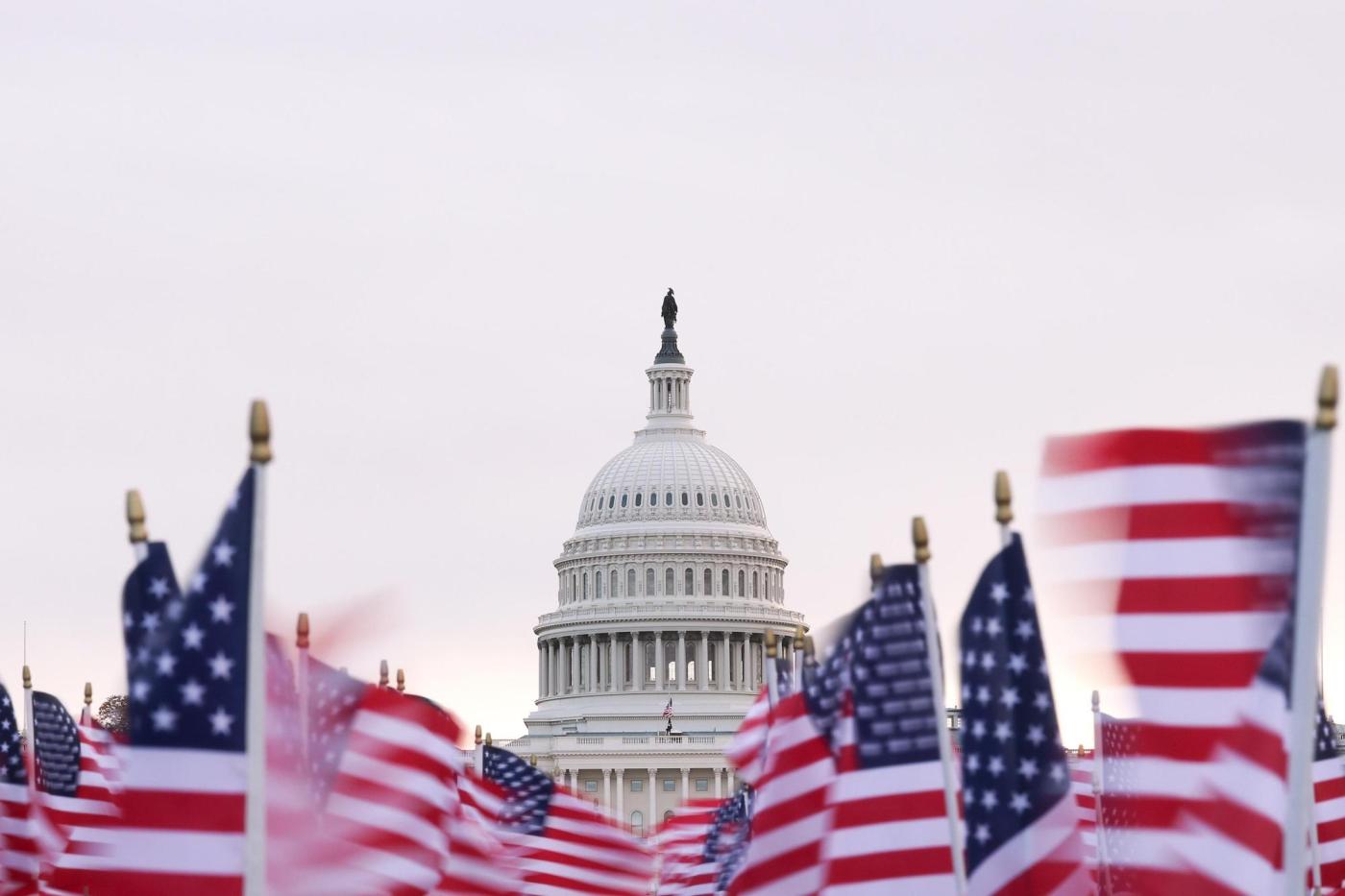Top Stories
Urgent: Filibuster Debate Intensifies Amid Government Shutdown Fallout

UPDATE: As the longest government shutdown in recent history nears its end, a heated debate over the future of the filibuster has erupted in Congress. The potential end of this procedural rule could have immediate and lasting impacts on legislative power dynamics.
Just yesterday, President Joe Biden called for Republicans to “terminate the filibuster” following their disappointing performance in last week’s elections. This statement has intensified discussions among GOP lawmakers, many of whom see abolishing the filibuster as a way to streamline their legislative agenda.
The filibuster, which requires a supermajority of 60 votes to end debate and advance legislation, has become a focal point as Republican frustrations rise. With both chambers of Congress under Republican control, the party has faced criticism for failing to pass key spending bills, resulting in the ongoing government shutdown.
Senate Republicans are now grappling with the implications of eliminating the filibuster. While some party members argue that doing so would enable them to push through tax cuts, immigration restrictions, and voter-ID laws, others caution that this could lead to significant backlash when Democrats regain power.
“Ending the filibuster would destabilize governance and embolden extremists,” a senior Republican official warned. “We must consider the long-term consequences of such a move.”
This debate over the filibuster is taking place against a backdrop of increasing political polarization. Critics argue that the filibuster has been abused, often requiring a supermajority for routine Senate business. In response, Congress has made several exemptions, including for budget reconciliation and appointments.
Rather than eliminating the filibuster entirely, some lawmakers propose reforms to curb its misuse. Potential reforms include requiring senators to maintain continuous debate on the floor or gradually lowering the cloture threshold to 55 votes. These approaches aim to strike a balance between preventing obstruction and preserving minority rights.
As James Madison noted during the Constitutional Convention in 1787, the Senate’s role is to proceed with “more coolness, with more system, and with more wisdom” than the House of Representatives. Advocates for reform believe that modern politics would benefit from these principles.
The urgency of this issue cannot be overstated. With the government shutdown affecting millions, Congress faces immense pressure to resolve these procedural disputes quickly. Lawmakers are now at a crossroads: Will they reform the filibuster to enhance legislative efficiency, or will they risk further entrenching divisive politics?
As developments unfold, all eyes are on Capitol Hill. The stakes are high, and the potential outcomes could redefine the legislative landscape for years to come. Stay tuned for more updates as this story continues to develop.
-

 Science1 month ago
Science1 month agoIROS 2025 to Showcase Cutting-Edge Robotics Innovations in China
-

 Lifestyle1 month ago
Lifestyle1 month agoStone Island’s Logo Worn by Extremists Sparks Brand Dilemma
-

 Science2 weeks ago
Science2 weeks agoUniversity of Hawaiʻi at Mānoa Joins $25.6M AI Initiative for Disaster Monitoring
-

 Health1 month ago
Health1 month agoStartup Liberate Bio Secures $31 Million for Next-Gen Therapies
-

 World1 month ago
World1 month agoBravo Company Veterans Honored with Bronze Medals After 56 Years
-

 Politics4 weeks ago
Politics4 weeks agoJudge Considers Dismissal of Chelsea Housing Case Citing AI Flaws
-

 Lifestyle1 month ago
Lifestyle1 month agoMary Morgan Jackson Crowned Little Miss National Peanut Festival 2025
-

 Health1 month ago
Health1 month agoTop Hyaluronic Acid Serums for Radiant Skin in 2025
-

 Science1 month ago
Science1 month agoArizona State University Transforms Programming Education Approach
-

 Sports1 month ago
Sports1 month agoYamamoto’s Mastery Leads Dodgers to 5-1 Victory in NLCS Game 2
-

 World1 month ago
World1 month agoHoneywell Predicts Record Demand for Business Jets Over Next Decade
-

 Top Stories1 month ago
Top Stories1 month agoIndonesia Suspends 27,000 Bank Accounts in Online Gambling Crackdown









